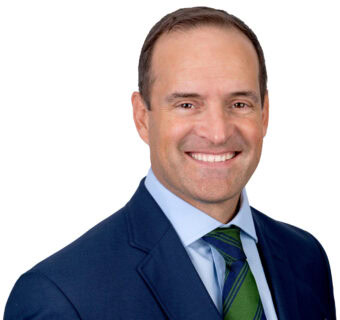A Cayman Islands Overview of Alternative Funds
Geopolitics, macroeconomic trends and increased regulation have continued to shape the environment for alternative investment funds. Meanwhile, the Cayman Islands continues to be recognised worldwide as an international financial centre of the highest calibre and remains one of the most popular offshore jurisdictions for fund formation.




General Overview of Jurisdiction
Leading financial institutions, Fortune 500 companies and private and public businesses from across the globe have chosen the Cayman Islands as their jurisdiction of choice for many reasons, including the following:
- Reputation: owing to its well-established legal system, stability and strong financial services industry, the Cayman Islands has a reputation as a high quality offshore centre.
- Flexibility: the Cayman Islands has the advantage of progressive “leading edge” legislation, developed in consultation and collaboration with industry stakeholders.
- Tax neutrality: the Cayman Islands levies no capital gains, income, profits, corporation or withholding taxes (whether on the investment fund or its investors or managers).
- Compliance culture: the Cayman Islands has long been committed to implementing best international practices and is compliant with the anti-money laundering and anti-terrorist financing requirements of the Organisation for Economic Co-operation and Development (OECD) and the Financial Action Task Force. The Cayman Islands has entered into a number of tax information exchange agreements.
- Stable and business-oriented government: the Cayman Islands is a British Overseas Territory and has a history of stable government, committed to promoting the financial services industry.
As a British Overseas Territory, the Cayman Islands has a familiar and reliable legal system based on English common law, supplemented by a modern and commercial statutory framework. With a sophisticated and developed court system, a history of stable government and a deep and well respected bench of jurists very familiar with complex commercial cases, the Cayman Islands provides a secure venue for high-stakes commercial litigation. The ultimate appellate court for Cayman Islands matters is the Judicial Committee of the Privy Council in London.
Key Trends
Statistics produced by the Cayman Islands Monetary Authority for Q2 2024 show growth across both mutual funds and private funds. This firm’s funds practice has seen the majority of new funds launched in the past year focusing on equities, fund-of-funds, private debt and digital assets. The use of subscription line facilities and net asset value loans by private equity funds continues to be a popular tool in capital raising. Regulatory developments affecting Cayman funds have centred around the extension of the beneficial ownership regime (see Anticipated Changes) and the increased use of international sanctions.
Types of Alternative Funds
There are no restrictions on the types of investment funds that can be established in the Cayman Islands. The types most commonly established include:
- private equity;
- private debt;
- hedge funds;
- crypto & digital assets;
- real estate;
- commodities;
- collectibles; and
- structured products.
Investment funds are classified as either open-ended (ie, voluntary redemptions/withdrawals permitted) or closed-ended (ie, voluntary redemptions/withdrawals not permitted).
Fund Structures
The Cayman Islands offer a wide range of investment vehicles for the establishment of investment fund structures. These include:
- exempted companies;
- exempted limited partnerships;
- limited liability companies;
- segregated portfolio companies; and
- unit trusts.
The type of investment vehicle utilised for a fund structure depends on the needs of fund promoters and proposed investors. When deciding on what type of vehicle and structure to use, tax considerations typically factor into the analysis. Cultural factors are also often taken into account, as it is usually desirable to choose a vehicle or structure with which potential investors are already familiar and therefore comfortable investing in.
Typical structures include:
- Standalone: the simplest structure is a stand-alone investment fund. Under this structure, investors simply purchase equity interests in a single vehicle.
- Multi-class or Umbrella: multi-class funds have shares or units split into a number of different classes, each with different investment objectives and pools of underlying investments. Such funds are often established as segregated portfolio companies.
- Side-by-side or Parallel: side-by-side fund structures usually involve the establishment of a standalone onshore fund and a standalone Cayman Islands fund. Under this structure the onshore and the Cayman Islands fund will each individually make identical investments in assets managed by the same investment manager.
- Master/Feeder: master/feeder structures typically involve three investment fund vehicles: an onshore feeder fund, an offshore (Cayman Islands) feeder fund and an offshore (Cayman Islands) master fund. Under this structure, the onshore and offshore feeder funds invest in the master fund, which utilises the proceeds of such investments to acquire a pool of assets. Usually, such structures are established to allow US investors to invest in the offshore master fund through the onshore feeder fund and for US tax exempt investors and non-US investors to invest through the offshore feeder fund. In some cases, only two investment fund vehicles are used, with US investors investing in the onshore feeder and US tax exempt and non-US investors investing directly in the offshore master fund.
- Fund-of-Funds: this term is more descriptive of investment objectives rather than structures. A fund-of-funds has the investment objective of investing its investment capital in other investment funds.
Regulatory Regime for Funds
Open-ended funds are regulated pursuant to the Mutual Funds Act (MFA) and closed-ended funds are regulated pursuant to the Private Funds Act.
The regulatory authority in the Cayman Islands is the Cayman Islands Monetary Authority (CIMA).
the MFA
A “mutual fund” is defined as an investment vehicle that issues “equity interests” allowing participation by a pool of investors in the profits or gains from such vehicle’s investments.
An “equity interest” means a share in a company, a unit in a unit trust, an interest in a partnership or any other representation of an interest that carries an entitlement to participate in profits or gains of such entity and which is redeemable or repurchasable at the option of the investor.
Therefore, to trigger the MFA, an investment vehicle will need to permit investors to withdraw/redeem at their option and there must be a pooling of investor funds.
There are broadly four categories of mutual funds under the MFA:
- limited investor funds;
- registered funds;
- administered funds; and
- licensed funds (also known as “retail funds”).
An additional subcategory is that of master funds. A master fund must have one or more regulated feeder funds (ie, one of the four categories listed above) either directly or through an intermediary entity established to invest in it.
Limited Investor Funds
A limited investor fund is a mutual fund with the following characteristics:
- the equity interests are held by not more than 15 investors; and
- the majority, in number, of the investors are capable of appointing or removing the operator of the fund (ie, the directors of a company, the trustee of a unit trust or the general partner of a limited partnership).
Limited investor funds are not required to have a prescribed minimum initial investment amount nor is there any requirement to have an offering document or file one with CIMA, but limited investor funds are required to register with CIMA by:
- filing a certified copy of an extract of the constitutional documents which specify that a majority of the investors, in number, are capable of appointing or removing the operator of the fund;
- filing such other information in the prescribed form as CIMA may require; and
- paying the prescribed initial and annual registration fee.
All limited investor funds must have their audited financial statements prepared or signed off by an approved Cayman Islands auditor and filed with CIMA within six months of their financial year end.
Registered Funds
Registered funds are the most common form of mutual funds in the Cayman Islands. For a registered mutual fund, the initial minimum subscription per investor must be at least USD100,000 (or equivalent) or the equity interests must be listed on an approved stock exchange (including an over-the-counter market).
A registered mutual fund is not required to be licensed. Instead, it is only required to register with CIMA which involves the filing of its offering document and certain prescribed details relating to the offering of its equity interests with CIMA.
Fees are payable to CIMA on registration and annually thereafter.
All registered mutual funds must appoint an administrator, and must have their audited financial statements prepared or signed off by an approved Cayman Islands auditor and filed with CIMA within six months of their financial year end.
Administered Funds
A mutual fund will be an administered mutual fund if its principal office in the Cayman Islands is provided by a Cayman Islands licensed mutual fund administrator. No minimum initial investment amount is prescribed. The registration process for an administered mutual fund is the same as that for a registered mutual fund, except that it must file an additional form with CIMA that is signed by the Cayman Islands’ licensed mutual fund administrator.
Licensed Funds (Also Known As “Retail Funds”)
Licensed mutual funds are the rarest form of mutual funds regulated under the MFA.
Unless a mutual fund falls within one of the other categories described above, it must obtain a mutual fund licence, which involves a prior approval process requiring CIMA to be satisfied that the promoter is of sound reputation, and that the administration of the fund will be undertaken by persons with sufficient expertise and who are fit and proper to act in their respective positions.
All licensed mutual funds must have a registered office in the Cayman Islands or, in the case of a unit trust, must have a locally licensed trustee.
A limited investor fund, a registered mutual fund or an administered mutual fund can voluntarily choose to be licensed.
Master Funds
Any Cayman Islands investment vehicle that issues equity interests and has a feeder fund regulated by CIMA investing in it must register as a master fund. The registration requirements are less onerous and do not require a master fund to file an offering document.
Private Funds Act (PFA)
A “private fund” is defined as a company, unit trust or partnership that offers or issues (or has issued) investment interests, the purpose or effect of which is the pooling of investor funds with the aim of enabling investors to receive profit or gains from such entity’s acquisition, holding, management or disposal of investments, where:
- the holders of investment interests do not have day-to-day control over the acquisition, holding, management or disposal of the investments; and
- the investments are managed as a whole by or on behalf of the operator of the private fund, directly or indirectly.
As the definition of “private fund” is so broad, the PFA includes a list of “non-fund arrangements” that would not be considered private funds and that are therefore outside the scope of the PFA.
A private fund must do the following (among other things):
- have its accounts audited annually by an approved auditor and signed-off and filed by a local auditor with CIMA within six months of its financial year end along with an annual return in prescribed form;
- have appropriate and consistent valuation procedures to be carried out at a frequency that is appropriate to the assets held and, in any event, at least annually;
- unless otherwise notified to CIMA (where it is neither practical nor proportionate to appoint a custodian, having regard to the nature of the fund and the type of assets held), appoint a custodian to
- hold in custody, in segregated accounts in the name or for the account of the fund; and
- verify, based on information provided by the fund and available external information, that the fund holds title to any other fund assets and maintain a record of those assets;
- monitor the cash flows of the fund; ensure that all cash has been booked in cash accounts opened in the name, or for the account, of the fund; and ensure that all payments made by investors to the fund in respect of investment interests have been received; and
- maintain a record of the identification codes of the securities it trades and holds if the private fund regularly trades securities or holds them on a consistent basis.
Disclosure/Reporting Requirements
the MFA
Registered funds, administered funds and licensed funds are required to file an offering document with CIMA. The MFA requires such offering document to describe the equity interests in all material respects, and to contain such other information as is necessary to enable a prospective investor to make an informed decision as to whether or not to subscribe for such equity interests.
In addition, CIMA has issued a Rule on Contents of Offering Documents – Regulated Mutual Funds which sets out the information that must be included in offering documents issued by mutual funds. Such information includes details regarding:
- the name of the fund, its registered office address, the date of formation and date of the financial year end;
- the place where fund documents and annual reports may be inspected;
- the rights and restrictions attaching to equity interests;
- subscription and redemption procedures;
- distribution policy;
- investment objectives, investment policy and investment restrictions;
- material risks;
- NAV calculation policy;
- service providers and material contracts;
- remuneration of the operator and service providers;
- any conflicts of interest;
- power to enter into side letters;
- applicable laws and regulations;
- the nature and frequency of financial reports and the accounting principles to be adopted; and
- biographies of directors/managers/principals/senior officers of the fund, its general partner or trustee (as applicable) and its investment manager/adviser.
the PFA
The PFA does not require a private fund to prepare an offering document. However, CIMA does require, at a minimum, a summary of terms to be filed at the time of registration. Any offering document, marketing materials or summary of terms used by a private fund must comply with CIMA’s Rule on Contents of Marketing Material – Registered Private Funds. The information required under this Rule is similar to the information required under the Rule on Contents of Offering Documents – Regulated Mutual Funds, which is summarised above.
Any offering documents, marketing materials or summary of terms filed with CIMA are not publicly available.
Tax Regime for Funds
The Cayman Islands levies no capital gains, income, profits, corporation or withholding taxes (whether on the investment fund or its investors or managers).
If the investment fund is incorporated as an exempted company it can obtain a renewable undertaking from the Cayman Islands government that it will remain tax-free for up to 30 years; in the case of a limited liability company, exempted trust or exempted limited partnership, the period is up to 50 years.
Loan Origination
There are no restrictions or special rules that apply to the origination of loans by Cayman Islands funds.
Non-traditional Assets
There are no restrictions on the types of assets in which a Cayman Islands fund may invest, including digital assets, consumer credit and other loan portfolios, cannabis/cannabis-related investments and litigation funding.
However, certain Cayman Islands laws would need to be considered when structuring a Cayman Islands fund to ensure compliance in all respects. These include:
- the Virtual Asset (Service Providers) Act (the “VASP Act”) in relation to digital assets;
- the Misuse of Drugs Act and the Proceeds of Crime Act in relation to cannabis/cannabis-related investments; and
- the Private Funding of Legal Services Act in relation to litigation funding.
Digital Assets
A fund could potentially trigger the VASP Act, requiring registration or licensing under such Act, if it provides virtual asset services that fall outside traditional fund activities. “Virtual asset services” include the issuance of virtual assets, custody of virtual assets or the transfer/exchange of virtual assets, for or on behalf of others.
The VASP Act defines virtual assets as “a digital representation of value that can be digitally traded or transferred and can be used for payment or investment purposes but does not include a digital representation of fiat currencies”. This wide definition captures all cryptocurrencies, security tokens, utility tokens or other digital assets that are tradeable or transferable, with the exception of digital fiat currencies.
Cannabis
Under the Misuse of Drugs Act, it is an offence to have dealings in controlled drugs (including cannabis). The Cayman Islands has made advances in permitting the use of medical cannabis where prescribed by a medical doctor, but it remains an offence to cultivate, sell, distribute or possess cannabis for recreational and other purposes.
Under the Proceeds of Crime Act, a Cayman Islands entity risks committing an offence if it deals with or acquires the proceeds of criminal conduct (which would include dealings with cannabis that amount to an offence under the Misuse of Drugs Act). However, this may not be an offence under Cayman Islands law where dealings with the cannabis occurred outside the Cayman Islands and such dealings are not an offence under the laws of the country where the dealings occurred.
Litigation Funding
The Private Funding of Legal Services Act is a relatively new statute and came into force in May 2021. This Act introduced a statutory framework for conditional fee agreements, contingency fee agreements and litigation funding agreements. Such statutory framework would need to be considered for any Cayman Islands law governed fee/funding agreements to be entered into by a litigation funding fund.
Use of Subsidiaries for Investment Purposes
It is common to use subsidiaries as holding vehicles to segregate assets and also as blockers for tax purposes.
local requirement for funds
There is no requirement for a Cayman Islands fund to have a Cayman Islands investment manager.
Other Local Requirements
All Cayman Islands investment funds are required to maintain a registered office in the Cayman Islands.
Corporate funds are not required to have local directors; however, a fund structured using an exempted limited partnership is required to have at least one “qualifying” general partner that is a person or entity resident, incorporated or registered in the Cayman Islands. Therefore, an exempted limited partnership must have a general partner that is either:
- a Cayman Islands incorporated company;
- a company or partnership formed outside the Cayman Islands and registered in the Cayman Islands as a foreign entity;
- another Cayman Islands exempted limited partnership (which must itself have a “qualifying” general partner); or
- an individual resident in the Cayman Islands.
Cayman Islands funds are not required to maintain any business premises in the Cayman Islands (other than the registered office noted above), to hire local employees or to satisfy any other substance requirements.
Each individual director of a mutual fund regulated under the MFA must register with CIMA under the Directors Registration and Licensing Act and must update their registration annually. Professional directors (a person appointed to 20 or more covered entities) and corporate directors (a body corporate appointed as a director for a covered entity) are required to be licensed under such Act. The Directors Registration and Licensing Act does not apply to:
- directors of funds registered under the PFA; and
- directors of general partners of mutual funds structured as exempted limited partnerships.
Rules Concerning Other Service Providers
Cayman Islands funds are not required to have any service providers located in the Cayman Islands, except as follows:
- all investment funds are required to maintain a registered office in the Cayman Islands;
- all investment funds are required to appoint auditors, either based in the Cayman Islands or based elsewhere with auditors in the Cayman Islands signing off on the audited financial statements;
- administered funds are required to have a principal office in the Cayman Islands provided by a Cayman Islands licensed mutual fund administrator; and
- licensed funds, structured as unit trusts, must have a locally licensed trustee.
Non-local service providers, including administrators, custodians and investment managers, will not be subject to regulation/registration requirements as long as they do not establish a place of business in the Cayman Islands and do not conduct business from or within the Cayman Islands.
Anticipated Changes
With effect from 31 July 2024, all Cayman Islands funds (other than unit trusts) are subject to the Cayman Islands beneficial ownership regime under the Beneficial Ownership Transparency Act, 2023 and associated regulations and guidance. The Cayman Islands Ministry of Financial Services and Commerce (MFS) has advised that enforcement of the regime will be suspended until 1 January 2025. The regime requires the identification of “required particulars” in relation to the investors of an affected fund and the provision of those particulars to the MFS. Once identified, the required particulars must be kept up to date and can be made available to certain government agencies in the Cayman Islands and the United Kingdom but not, as yet, to the public.
Affected funds will need to engage with their administrators and registered office service providers to prepare for compliance with the beneficial ownership regime in time for 1 January 2025, confirming that those service providers are aware of the fund’s responsibilities under the regime and the roles that they will need to fulfil to ensure that the required information is filed with – or can be provided within 24 hours to – the MFS.
Administration agreements and registered office services agreements may need to be updated to incorporate the provision of beneficial ownership services, and subscription documents may need to be updated for prospective investors. For existing investors where the required particulars are not already held as part of the anti-money laundering due diligence collected, notices should be sent by the fund’s administrator requiring the provision of the relevant details and verification documents.
Fund Managers
Origin of Promoters/Sponsors of Alternative Funds
There is no requirement for a Cayman Islands fund to have a Cayman Islands investment manager; therefore, investment managers for Cayman Islands funds are not usually located in the Cayman Islands.
Investment managers for Cayman Islands funds are based across the globe, including in North America, Europe, Asia and Latin America.
Legal Structures Used by Managers
The Cayman Islands offers a wide range of vehicles for the establishment of investment managers, and while companies are the most popular, the type of vehicle utilised will very much depend on familiarity, preference and onshore tax considerations.
Where Cayman Islands vehicles are used for a fund’s manager, these allow for very flexible equity incentive arrangements for their equity holders through bespoke constitutional documents and shareholder agreements. A remuneration policy is required for the governing body and certain employees of a Cayman Islands licensed or registered investment manager, which must:
- not induce excessive or inappropriate risk-taking;
- align with the corporate culture, objectives, strategies, identified risk appetite and long-term interests of the investment manager; and
- have proper regard to the interests of relevant stakeholders.
Regulatory Regime for Managers
The principal Cayman Islands legislation applicable to alternative fund managers is the Securities Investment Business Act (SIBA). SIBA provides for the licensing and control of persons engaged in a securities investment business activity (which would typically include activity undertaken by investment managers) in or from the Cayman Islands.
SIBA regulates dealing in, arranging, managing or advising on securities which are broadly defined and include shares, futures, options, swaps and contracts for differences. Anyone carrying on “securities investment business” must apply to CIMA for a licence unless they can rely on an exemption.
Exemption from licensing is available if services are to be provided by a Cayman Islands investment manager solely to funds falling within the following categories of persons:
- sophisticated persons (ie, persons regulated by CIMA or regulated by a recognised overseas regulatory authority, or any of whose securities are listed on a recognised securities exchange, or who are reasonably to be regarded as capable of evaluating the merits of a proposed transaction and who invest at least USD100,000 in each single transaction);
- high net worth persons (ie, individuals whose net worth is at least USD1 million or persons that have total assets of at least USD5 million); and
- entities whose investors are either sophisticated persons or high net worth persons.
Although a licence is not required for the above-listed exemptions, there is a requirement to register with CIMA and to update such registration annually. Cayman Islands funds managers are also required to comply with anti-money laundering obligations and, unless an exemption applies, with FATCA/CRS obligations under Cayman Islands law.
There are no current registration/licensing requirements for parties conducting securities investment business who are not Cayman Islands entities and who are not conducting securities investment business from an established place of business in the Cayman Islands.
No specific disclosures are required for Cayman Islands fund managers, but a Cayman Islands fund’s offering documents are required to include:
- any material involvement by the manager in the calculation, determination or production of the fund’s net asset value or pricing of the fund’s portfolio;
- information concerning the manner, amount and/or calculation of remuneration paid to the manager;
- the names and biographies of the manager’s directors; and
- the material provisions of the investment management agreement.
Rules Concerning Permanent Establishments
There are no rules regarding permanent establishments or other taxable presences in the Cayman Islands.
Outsourcing of Investment Functions/Business Operations
Managers can outsource investment functions or business operations.
CIMA has issued a Statement of Guidance setting out its minimum expectations regarding the outsourcing of material functions or activities as well as outsourcing arrangements for SIBA registered/licensed managers and certain other CIMA regulated entities. Some of the key provisions include the requirement to:
- have a written outsourcing agreement;
- maintain the same level of oversight and accountability on outsourced functions and activities as would be applied to non-outsourced functions and activities;
- implement a risk policy on outsourcing; and
- conduct due diligence on a service provider in order to ensure that the service provider can effectively perform the outsourced functions and activities and to identify and manage any conflicts of interests.
Local Substance Requirements
If a Cayman Islands alternative fund manager provides discretionary fund management services to an investment fund, economic substance requirements may apply pursuant to the International Tax Co-operation (Economic Substance) Act (the “ES Act”).
Economic substance requirements are satisfied by an entity in the case of the following:
- it conducts core income generating activities in the Cayman Islands;
- it is directed and managed in an appropriate manner in the Cayman Islands; and
- having regard to the level of relevant (ie, gross) income derived from the relevant activity carried out in the Cayman Islands, it:
- has an adequate amount of operating expenditure incurred in the Cayman Islands;
- has an adequate physical presence in the Cayman Islands; and
- has an adequate number of full-time employees or other personnel with appropriate qualifications in the Cayman Islands.
The ES Act permits the outsourcing of activities to service providers in the Cayman Islands and such outsourcing could aid in satisfying some of the economic substance requirements.
Economic substance requirements do not apply to:
- advisory services where no discretion is exercised over the assets of the fund; and
- entities that are tax resident outside the Cayman Islands.
The satisfaction of the economic substance requirements will be a question of fact. There is no one-size-fits-all approach and much depends on the size and scope of the business (both in the Cayman Islands and in other locations) and the expected gross income in the Cayman Islands.
Change of Control
Under Cayman Islands law, there are no regulatory or investor approvals required in connection with a merger, sale, restructuring or similar transaction involving a SIBA registered fund manager or its parent company. Notice of any such change has to be provided to CIMA within 21 days.
However, if the fund manager is licensed with CIMA, then CIMA’s prior approval is required for any transactions involving a change of control of the licensed fund manager.
AI and Use of Data
The are no regulatory requirements or limitations in connection with the use of artificial intelligence, predictive data or big data, but any use of generative artificial intelligence software, tools or technologies (including natural language processing, deep learning algorithms or machine learning models) must comply with the requirements of the Cayman Islands Data Protection Act (DPA).
The DPA came into full force in 2019 and is drafted around a set of EU-style data protection principles to which data controllers must adhere. Personal data must be collected in a fair and transparent manner and must only be used and disclosed for purposes properly understood and agreed to by data subjects. Any personal data collected must be adequate, kept up to date and not retained for longer than is necessary to fulfil the collection purpose. Importantly, the DPA provides a standard framework for both public and private entities in the management of the personal data they use.
Investors
Types of Investors in Alternative Funds
Owing to the reasons set out in the General Overview of Jurisdiction, the Cayman Islands is the leading jurisdiction for investment funds with around 30,000 regulated funds as of Q2 2024. Generally, there are no special requirements or restrictions with respect to investors investing into Cayman Islands funds and as a result Cayman Islands funds attract investors from around the world. However, owing to various regulatory and disclosure requirements in the USA, US taxable investors are the least common for Cayman funds.
Side Letters
Side letters are permitted and are widely used by Cayman Islands funds. For a side letter to be valid and enforceable, the fund’s constitutional documents must allow it. Additionally, the scope of the side letter must fall within the side letter disclosure provisions in the offering/constitutional documents and – for companies – must not modify existing shareholder rights enshrined in the fund’s constitutional documents.
CIMA’s Rules on the Contents of Offering Documents – Regulated Mutual Funds and the Contents of Marketing Material – Registered Private Funds require offering documents/marketing materials to include a statement confirming the power to enter into side letters that bind the fund and that contain any terms the effects of which provide an investor with more favourable treatment than other holders of the same class of interest enhancing that investor’s ability to either:
- redeem interests of that class; or
- make a determination as to whether to redeem interests of that class, and which in either case might reasonably be expected to put other holders of interests of that class who are in the same position at a material disadvantage in connection with the exercise of their redemption or withdrawal rights.
Marketing of Alternative Funds to Investors
Non-Cayman Islands Funds
A non-Cayman Islands fund is permitted to market without restrictions in the Cayman Islands provided the offering is limited generally to the following types of persons/entities:
- sophisticated persons;
- high net worth persons;
- exempted and non-resident companies incorporated in the Cayman Islands;
- foreign companies and limited liability companies registered in the Cayman Islands;
- exempted limited partnerships and limited liability partnerships established in the Cayman Islands; and
- trustees of certain registered trusts (collectively, Permitted Offerees).
If offering to persons/entities who are not Permitted Offerees, the non-Cayman Islands fund will be required to either:
- register/obtain a licence under the MFA or PFA, as applicable; or
- make an invitation to subscribe for interests by or through a person who holds an appropriate licence under SIBA, provided that:
- those interests are listed on an approved stock exchange; or
- the non-Cayman Islands fund is regulated by an approved overseas regulatory authority.
Cayman Islands Funds
The investment vehicles (eg, exempted companies, exempted limited partnerships or limited liability companies) commonly used for structuring Cayman Islands funds are not permitted to undertake business with persons in the Cayman Islands except for the furtherance of the business of the fund carried on exterior to the Cayman Islands.
Consequently, Cayman funds, unless they are listed on the Cayman stock exchange, are not permitted to offer interests to the “public in the Cayman Islands”. Permitted Offerees are not included in the definition of “public in the Cayman Islands” and such persons are permitted to invest in Cayman Islands funds.
Rules Concerning Marketing of Alternative Funds
Depending on the nature of the activities, any firm marketing or advertising funds from or into the Cayman Islands might trigger SIBA. Please see Regulatory Regime for Managers.
Although there are no required regulatory filings in respect of marketing, CIMA has issued a Marketing Policy applicable to licensed funds only. Such policy requires licensed funds to refrain from the use of aggressive marketing policies based exclusively or primarily on confidentiality, or secrecy in order to attract business. Licensed funds are also expected to demonstrate a high level of responsibility in the marketing of all their services.
Compensation and Placement Agents
The use of placement agents is permitted and common for Cayman Islands funds.
Acting as a placement agent in or from the Cayman Islands will generally constitute “securities investment business” and will trigger SIBA requirements. Please see Regulatory Regime for Managers.
No restrictions or special rules apply to compensation of a manager’s personnel for sales efforts.
Double Tax Treaties
The Cayman Islands does not have any double tax treaties. The Cayman Islands is tax neutral and therefore does not require tax treaties, as there is no tax conflict and no risk of double taxation.
Foreign Account Tax Compliance Act (FATCA)/Common Reporting Standard (CRS) Compliance Regime
The Cayman Islands is a signatory to the multilateral competent authority agreement to implement the Organisation for Economic Co-operation and Development (OECD) Standard for Automatic Exchange of Financial Account Information – Common Reporting Standard (CRS), and to an inter-governmental agreement with the United States to improve international tax compliance and implement the Foreign Account Tax Compliance Act (the “US IGA”). The Cayman Islands has enacted laws and regulations to give effect to the CRS and the US IGA (the “AEOI Laws”), and has published guidance notes on the application of the AEOI Laws in the Cayman Islands.
The AEOI Laws have established a financial account information reporting regime in the Cayman Islands. All Cayman Islands entities classified as reporting financial institutions under the AEOI Laws must comply with registration, due diligence and annual reporting obligations, including the requirements to:
- register with the IRS;
- register with the Cayman Islands Tax Information Authority (TIA);
- adopt and implement written policies and procedures in relation to CRS responsibilities;
- conduct due diligence on their accounts to identify reportable accounts;
- report information annually to the TIA on reportable accounts; and
- file and an annual CRS compliance form with the TIA.
The TIA transmits reported information annually to the relevant overseas authorities.
Most Cayman Islands funds will be classified as reporting financial institutions for the purposes of the AEOI Laws, and will be required to comply with the registration, due diligence and annual reporting obligations under the Cayman Islands AEOI regime. Cayman Islands funds are permitted to delegate some or all of their responsibilities under the AEOI Laws to third-party service providers.
Anti-Money Laundering (AML) and Know Your Customer (KYC) Regime
Cayman Islands funds are subject to:
- the Cayman Islands Proceeds of Crime Act;
- the Misuse of Drugs Act;
- the Terrorism Act;
- the Proliferation Financing (Prohibition) Act; and
- the Anti-Money Laundering Regulations and the Guidance Notes on the Prevention and Detection of Money Laundering, Terrorist Financing and Proliferation Financing in the Cayman Islands issued by CIMA as well as targeted financial sanctions (collectively, the “Cayman AML Regulations”).
To ensure compliance with the Cayman AML Regulations, Cayman Islands funds are required to adopt and maintain appropriate policies and procedures, and require investors to verify:
- their identity;
- the identity of their beneficial owners/controllers (where applicable);
- their address; and
- their source of funds.
Cayman Islands funds are also required to appoint individuals in the positions of money laundering reporting officer, deputy money laundering reporting officer and anti-money laundering compliance officer.
Where permitted, and subject to certain conditions, Cayman Islands funds may rely on a suitable person for the maintenance of their anti-money laundering, anti-terrorism and anti-proliferation financing policies and procedures, or may otherwise delegate such functions to a suitable person.
CIMA has a discretionary power to impose substantial administrative fines upon a fund in connection with any breaches of prescribed provisions of the Anti-Money Laundering Regulations, and upon any operator or officer of the fund who consented to or connived in the breach or to whose neglect the breach is proved to be attributable.
Data Security and Privacy for Investors
Investors in funds increasingly require and demand data privacy. As obligations to collect personal data increase with new international data sharing regimes, fund managers need to pay close attention to data protection issues. These international obligations, together with cybersecurity concerns and innovative technology deployments are making the regulation of personal data more complex than ever before.
The Data Protection Act (DPA) regulates the processing of all personal data in the Cayman Islands. Drafted around a set of internationally recognised privacy principles, the DPA provides a framework of rights and duties designed to give individuals greater control over their personal data. Importantly, the DPA supports a growing expectation from international businesses and their clients that organisations operating in offshore jurisdictions have comprehensive data protection compliance requirements in place, backed up by robust data privacy legislation.
Personal data is defined widely to include any data relating to a living individual. The average fund generates and retains a huge amount of personal data. Fund managers may hold proprietary research and investment strategies, high value email and contact lists and net worth information for individuals. Under the DPA, all personal data held by the fund must be processed fairly and lawfully and be used for a legitimate purpose that has been notified to the data subject in advance. Personal data holdings should not be excessive in relation to the purposes for which they are collected and should be securely purged once those purposes have been fulfilled.
If personal data is processed for any new purposes, this processing can only be undertaken if fresh consent is obtained. Data subjects must also be informed of any countries or territories outside the Cayman Islands to which their personal data may be transferred. Recommended best practice is for this information to be set out in a separate privacy notice that can be provided with the offering document and subscription documents.
Contractual provisions should be put in place between the fund (as the data controller) and the third-party service provider (as data processor) to ensure that:
- any personal data is processed only for authorised purposes;
- all data is stored and transmitted securely; and
- disaster recovery practices are in place in the event of a data breach.
Use of subcontractors by the service provider should be prohibited without the prior approval of the fund.
First published by the Chambers Global Practice Guides, ‘Alternative Funds 2024’. View the entire guide here.
locations
services
A Cayman Islands Overview of Alternative Funds, Corporate, Fund Finance, A Cayman Islands Overview of Alternative Funds, A Cayman Islands Overview of Alternative Funds
Sector
A Cayman Islands Overview of Alternative Funds, Economic Substance































